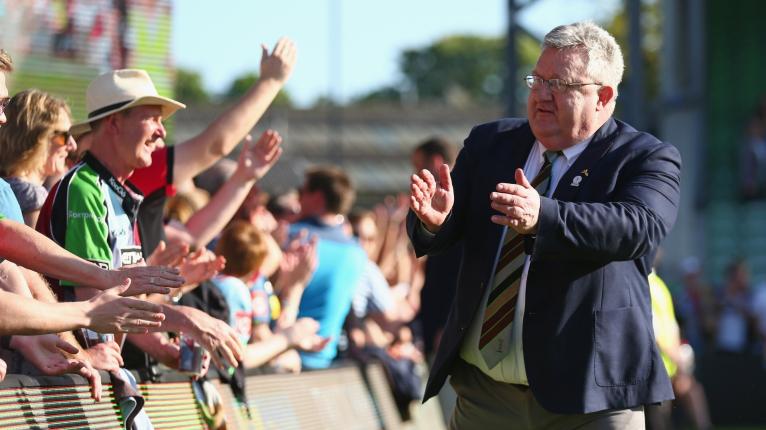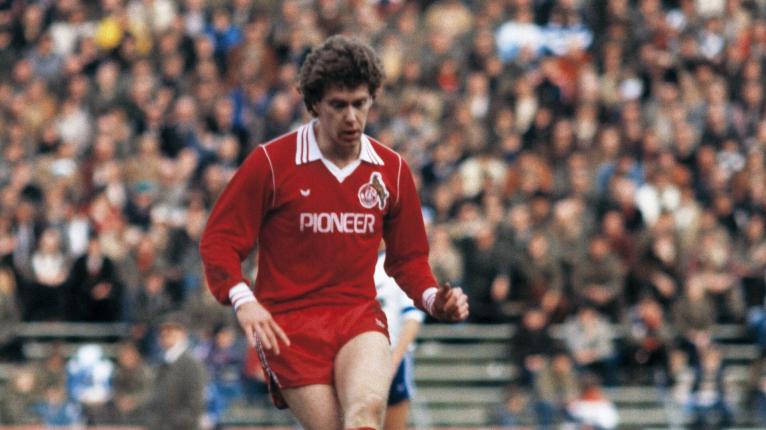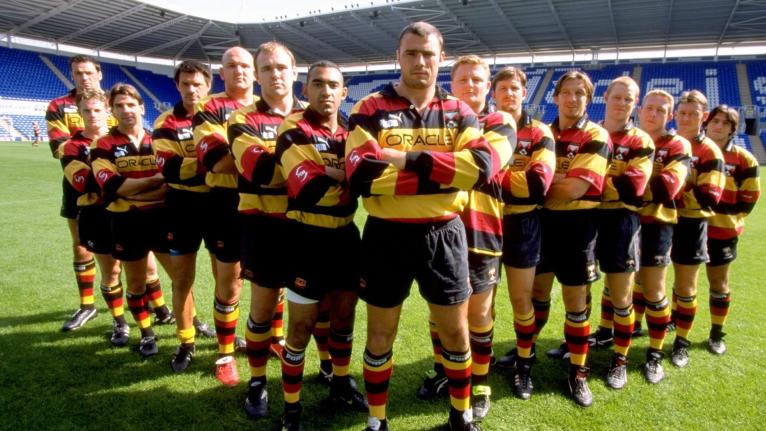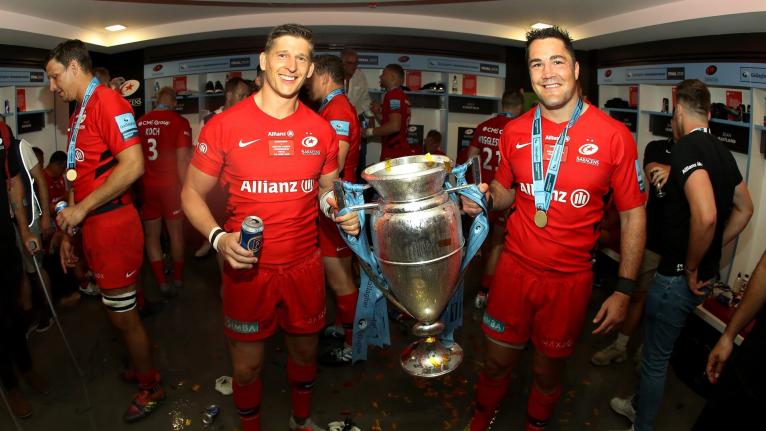'Drunks were trolling me... I was getting emails in the middle of the night'

Axed Gallagher Premiership referee JP Doyle was quite the wordsmith earlier this week when breaking his silence on his recent RFU redundancy. “I love the game but the game loves nobody,” he said, a perceptive sentiment that former Harlequins boss John Kingston can vouch for.
It’s 28 months since Kingston was pushed aside at The Stoop, the Harlequins axe falling following a home hammering by relegation-bound London Irish. He was the Premiership’s fourth director of rugby cut in that 2017/18 season of disgruntlement, Jim Mallinder, Gary Gold and Nick Kennedy all handed P45s prior to the then 58-year-old’s 17-year association getting terminated at Quins.
Results brutally did for him. Sixth the previous year, their highest league placing since fourth in 2013/14, the ambition was reaching the play-offs. A contract extension was even signed in January 2018, but Kingston was still chucked aside just three months later after injuries, suspensions and a whole load more bumps suckered Harlequins into underachievement.
The trolls got their sacrifice. Kingston doesn’t do social media but he wasn’t immune to its rage that spring, caustic middle of the night emails frequently from some Harlequins fans invading his privacy. He’d long accepted from his amateur days how coaches are forever expendable due to pressures on results, but this culture of antagonistic hatred now increasingly prevalent across the game added an unwelcome layer to his sacking.
“The cynicism, I was under no illusions about it,” Kingston told RugbyPass, reflecting on a long career where he joined Harlequins in 2001 following a stint in the All-Ireland League with Galwegians. “I felt under pressure to get results coaching Richmond in the amateur days. I’m not joking here: if you didn’t achieve what was necessary as a coach even though you weren’t being paid or you were getting pocket money, it didn’t matter – the committee would move you on the following year because they wanted success. That has been there since time immemorial.
“The lack of tolerance is getting greater and greater, but what comes with it is the world we live in now. It’s a world of immediacy. It’s social media, everyone has an opinion… and people were trolling me. I was getting emails in the middle of the night. Never during the day, always the middle of the night when people were drunk and they find out your email address and tell you to get out of the club, they don’t want you involved in it… it’s not helpful to you doing your job.
“But when I left I got this absolute outpouring of people supporting me, thanking me for all I had done in whatever many years at Quins. I’m the most successful coach Harlequins have ever had. We won more trophies when I was the head coach at Harlequins than at any time in the professional era. I know what I have achieved.
“At the end of the last game at Quins, I walked around the pitch (Kingston agreed to stay for the season’s final month and bowed out with a home loss to Exeter). I didn’t want to but it took me half an hour because there were so many people that wanted to shake my hand and thank me for what I had achieved or what I had done.
“I’d just done my job and it ended sourly in the way professional sport inevitably does, but there is a witch hunt in life at the moment about everything. Everybody wants to be negative about the way things are evolving, most of it with hindsight. I don’t like it. I don’t like the way the world is in that regard.
“Generally in life, the immediacy really troubles me and I don’t see a way out of it. I’m not on social media, never have been. I abhor it. I understand it to a degree but my analogy is when you ran the Grand National with the fences not the way they are now – for me, Becher’s Brook is social media.
“When I get to Becher’s Brook there is a man who waves me around who says, ‘You don’t have to fall here John because you’re not on social media so you don’t have to jump that fence’. I tried to tell my players that. You choose to jump Becher’s Brook you’re going to fall on several occasions and it’s going to really let you down.
“I don’t like that but the cynicism of it [pressure on getting results] is still very, very similar. It’s probably just more in your face, more public than it ever was in the days at the start when people were hotshot guessing what to do way back 25 years ago.”
The umbilical cord cut with Harlequins, Kingston, a Cambridge University graduate who worked nearly 15 years as a commercial property director prior to pro rugby coaching, now leads a more varied way of life. He keeps his coaching eye active, spending about two nights a month at the Reading-based National 1 Rams, a consultancy that included reviewing match footage.

But his main focus is two-fold, his own CJK Sports Consultancy and his partnership in TWK Sports Management, the one-stop sports family suite of services which he provides with Adrian Taylor and Tony Woodcock, the former England footballer who is Mike Brown’s father-in-law.
“What I decided to do post-Quins, I always felt the support mechanisms towards rugby specifically but it’s true of all sportspeople, I never believed they were where they should be. It’s not specifically criticism of agents per se but they clearly fall down the line as the support mechanism.
“I look at the way life is and all of the things, legally, accountancy-wise, insurance-wise, what do players do after they finish rugby or whatever sport. I just felt there wasn’t the necessary help and support from a life perspective. I also had my own view that if you look at the one piece of representation they had on the agents’ side, the whole thing is just riddled, it’s susceptible to wrongdoing,” he suggested, mentioning how post-playing HMRC tax bills, image rights and post-career business plans are particular issues of concern.
“The clubs are generally supportive. The odd one or two have been a little protective saying, ‘We do all of that ourselves’. But with respect, who do you think you are that you think you can be responsible for each individual’s needs? You don’t know everybody’s needs.”
It’s a feeling endorsed by the chaos of recent months, clubs breaching contracts by bringing in permanent salary cuts that left players “complete and utter rabbits in the headlights”. Kingston is flabbergasted club owners got away with it, especially as business plans for the 2019/20 season were effectively only impacted for three months.

“The minute it [lockdown] happened I said I’m fascinated with this because the clubs are going to go and talk together and they’re going to start to pick off the players on an individual club by club, player by player basis… it was awful to see.
“There was no impact to the income stream for those businesses from July 1 right the way through to the end of March, that’s three-quarters of the income stream for the year. The 25 per cent cut was a draconian figure and then the next move before anyone knows the long-term impact for the next year is they do the individual again and this is why world war three breaks out.
“I saw a degree of opportunism going on with the clubs albeit in a difficult scenario… it was and still is a complete and utter mess. As a consequence, contracts have been breached, representatives and players don’t really understand the legal ramifications of it en bloc because it’s unique times. It has never happened in this way before and it has been quite ugly to watch with the way it has been unfolding.”
Ugly behaviour is nothing new for Kingston, given he was at the coaching helm when Richmond went to the wall as a professional club. It was 23 years ago last weekend when they debuted in the Premiership, a win over London Irish he still remembers with microscopic detail. “It was in the Athletic Ground, we scored four tries, Scott Quinnell got one off the back of the scrum, and it was the week before Princess Diana died.”
That was August 1997. Just 19 months later, the project was scorched and the Ashley Levett-owned Richmond were placed in administration, a busted flush that left them having to reform as an amateur outfit at the bottom of the English grassroots pyramid after a disastrous alliance with a financial markets trader out of his depth in the world of pro sport.

“People had no idea, no idea whatsoever,” fumed Kingston all these years later. “I’d say it even if he was sitting here now: Ashley Levett, the owner of Richmond, had no experience. He had the experience of business but had no experience of the business in sport.
“The Athletic Ground was a metropolitan open space, it wasn’t owned by Richmond. Richmond also wasn’t a town club that was going to get 10,000 supporters through the gates immediately. The fascination was this was a person from Winchester who wasn’t a Richmond die-hard fan, so why then go into business with this particular club? All I’m simply saying is how much was thought through on the business side of it?
“From day one there was no way that the cost of setting this thing running was going to be mirrored by the income stream. As a consequence, it became quite quickly tiring for all of those people who jumped into the sporting business, rugby professionalism. They all jumped in because they thought they were going to make a quick buck, but there is no such thing as a free lunch, therefore it became really difficult.
“For Ashley Levett, I reckon he knew really early in the piece (there was no money to be made) and it was a dignity thing for him where people of these egos are not going to be the first to leave the roulette table. Several of them were very quickly sick because they realised that they didn’t want to swan down millions of pounds a year, and why would you in a business that was not at that point sustainable?
“I didn’t think professional rugby would be sustainable when I first went into it but I went into it because my dad said back yourself. I was wrong (about professional rugby not having a long-term future) but I wasn’t wrong about the millions and millions spent.”

The salary cap was the mechanism supposed to curb this top-flight largesse over the ensuing decades but this season’s Saracens scandal highlighted the loopholes ripe for exploitation and Kingston – given how Saracens were winning all around them while he was at Harlequins – is still annoyed the punishment meted out was merely automatic relegation to the Championship.
“It was actually refreshing something was done about it but I still struggle to see the link. If you commit murder it’s 30 years, if you rob a bank it’s whatever years, a consistent amount for what the crime is you have committed. I struggle to see the Saracens penalty is actually in line with previous stuff that has gone on where clubs have gone into administration because of maladministration of finances.
“Take Richmond – the consequences of that was (dropping down) nine divisions. You look at Saracens, where cheating has happened on a day to day, week to week basis, and it’s just one division. I’m struggling with that. I’m probably in a minority, but I also struggle with the fact the medals have not been returned. For me, it’s very simple: if you’re caught cheating, which is what it was, and you have won something then you’re disqualified and therefore you hand back your medals. It happened to Lance Armstrong. Go to Melbourne Storm and look at rugby league.
“I was asked the other week would you really take a medal off Brad Barritt, what has he done wrong? I said I would because it wasn’t legal what was going on. I’m afraid if you were part of something where you win a title or a cup and you have broken the rules I don’t think history can allow you to continue to have done that.
“Take Bloodgate, for example. I lived and worked my way through that (at Harlequins) and the reality was that rules were broken,” agreed Kingston. “It was wrong and if Quins had gone on and won the trophy that should have been taken away from them even though it would have been for something far less than the systematic day in, day out Saracens cheating. You can’t keep a trophy if you’re proven to have broken the rules.”





















































